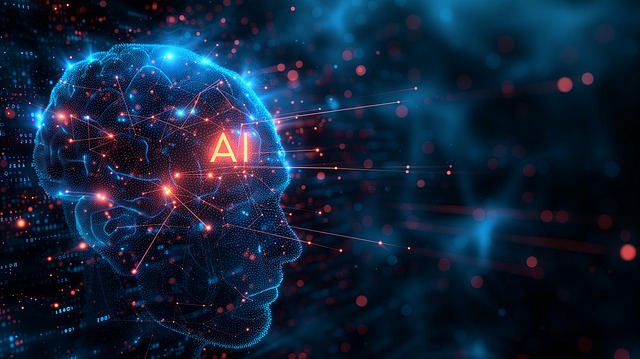Artificial Intelligence (AI) search is transforming how we access and understand information by moving beyond simple keyword matching. AI algorithms analyze user intent, context, and semantic meaning, delivering more precise, relevant, and personalized results. This advanced approach enhances user experiences, facilitates innovation, and aids data-driven decision-making across various domains. As AI search continues to evolve, it promises significant benefits but also raises ethical concerns about bias, privacy, and misinformation. Responsible development will require transparency, accountability, and adherence to ethical guidelines to ensure user trust and mitigate unintended consequences.
In the digital age, search intelligence is transforming how we interact with information. This comprehensive guide delves into the multifaceted world of artificial intelligence (AI) in search algorithms, exploring their potential to revolutionize knowledge discovery. From understanding search intelligence’s core concepts to examining ethical considerations and future prospects, we uncover the power of AI to enhance, refine, and shape our online experiences. Unlocking search potential through AI promises a new era of information access.
- Unlocking Search Potential: The Power of AI
- Understanding Search Intelligence: A Comprehensive Overview
- Integrating Artificial Intelligence in Search Algorithms
- Ethical Considerations and Future Prospects of AI Search
Unlocking Search Potential: The Power of AI

Unleashing the full potential of search is now a reality with Artificial Intelligence (AI) at the helm. AI search transforms static results into dynamic, context-aware insights, enhancing user experiences. By understanding intent rather than just keywords, it delivers relevant answers, tailored to individual needs. This revolutionary technology goes beyond simple keyword matching, enabling profound discoveries and connections within vast datasets.
The power of AI lies in its ability to analyze patterns, learn from interactions, and continuously improve search accuracy. It can interpret complex queries, account for user behavior, and even predict future trends based on historical data. This advanced capability ensures that search becomes a powerful tool not just for finding information but for gaining insights, fostering innovation, and driving decision-making in an increasingly data-driven world.
Understanding Search Intelligence: A Comprehensive Overview

Search intelligence, a fusion of advanced artificial intelligence (AI) and search technologies, is transforming how we access and interpret information. It goes beyond traditional keyword matching by leveraging machine learning algorithms to understand user intent, context, and semantic meaning behind queries. This innovative approach enables more accurate and relevant results, enriching the search experience.
Artificial intelligence search plays a pivotal role in enhancing information retrieval, personalizing content delivery, and predicting future trends based on historical data. By analyzing vast amounts of data from diverse sources, AI-powered search tools can offer insights that were previously inaccessible. This not only improves productivity but also empowers users to make informed decisions, fostering innovation and knowledge discovery across various domains.
Integrating Artificial Intelligence in Search Algorithms

The integration of Artificial Intelligence (AI) into search algorithms is transforming the digital landscape. AI-powered search tools leverage machine learning and natural language processing to deliver more accurate, relevant, and personalized results. By understanding user intent and context, these algorithms can anticipate queries, provide proactive suggestions, and adapt to individual preferences over time. This evolution goes beyond traditional keyword matching, enabling a more intuitive and human-like interaction with information.
Incorporating AI search capabilities offers numerous advantages. It enhances user experiences by providing faster and more tailored responses, which is especially valuable in today’s fast-paced world. Moreover, AI can improve search engine efficiency by filtering irrelevant content, identifying emerging trends, and uncovering hidden patterns within vast data sets. This not only benefits end-users but also aids businesses in making data-driven decisions and staying ahead in competitive markets.
Ethical Considerations and Future Prospects of AI Search

As artificial intelligence (AI) continues to transform various sectors, the future of search intelligence looks promising but also raises important ethical considerations. AI search algorithms have the potential to revolutionize information retrieval by understanding complex queries and delivering highly personalized results. However, concerns about bias in data and algorithms, privacy invasion, and the potential for misinformation amplification need careful addressing. Ensuring transparency and accountability in AI search is crucial to maintaining user trust and mitigating unintended consequences.
Looking ahead, the development of ethical guidelines and regulatory frameworks will play a pivotal role in shaping the responsible evolution of AI search. Researchers and developers must prioritize fairness, inclusivity, and user well-being in their models. Additionally, continuous advancements in natural language processing and machine learning techniques can further enhance AI search capabilities, making it more intuitive and contextually aware. These future prospects offer exciting opportunities to create intelligent search systems that not only meet users’ information needs but also uphold moral standards.
Search intelligence, driven by artificial intelligence (AI), is transforming how we interact with information. By integrating AI into search algorithms, we unlock unprecedented potential for personalized, relevant, and efficient access to knowledge. As we navigate the ethical considerations and embrace future prospects, AI search promises to revolutionize not just our online experiences but also the way we understand and engage with the world around us.
